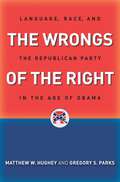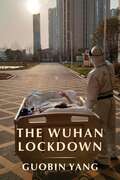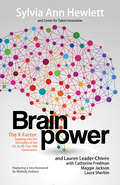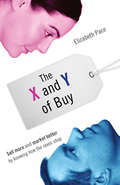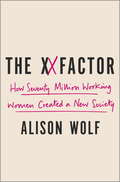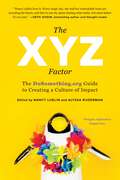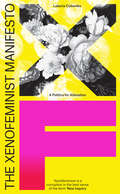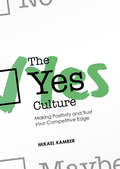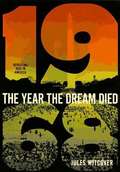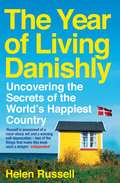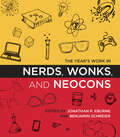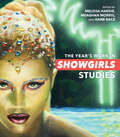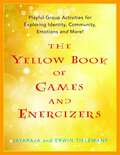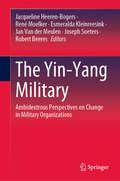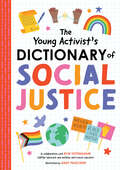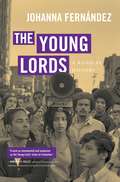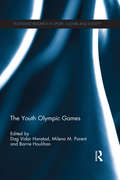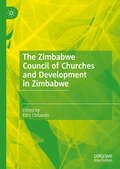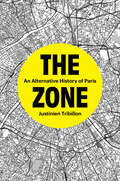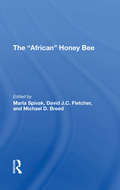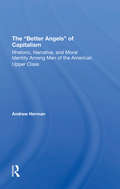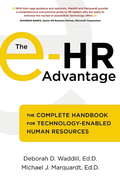- Table View
- List View
The Wrongs of the Right: Language, Race, and the Republican Party in the Age of Obama
by Matthew W. Hughey Gregory S. ParksExamines the coded language of the Republican PartyIn The Wrongs of the Right, Matthew W. Hughey and Gregory S. Parks set postracial claims into relief against a background of pre- and post-election racial animus directed at President Obama, his administration, and African Americans. They show how the political Right deploys racial fears, coded language and implicit bias to express and build opposition to the Obama administration. Racial meanings are reservoirs rich in political currency, and the race card remains a potent resource for othering the first black president in a context rife with Nativism, xenophobia, white racial fatigue, and serious racial inequality.
The Wuhan Lockdown
by Guobin YangA metropolis with a population of about 11 million, Wuhan sits at the crossroads of China. It was here that in the last days of 2019, the first reports of a mysterious new form of pneumonia emerged. Before long, an abrupt and unprecedented lockdown was declared—the first of many such responses to the spread of the COVID-19 pandemic around the world.This book tells the dramatic story of the Wuhan lockdown in the voices of the city’s own people. Using a vast archive of more than 6,000 diaries, the sociologist Guobin Yang vividly depicts how the city coped during the crisis. He analyzes how the state managed—or mismanaged—the lockdown and explores how Wuhan’s residents responded by taking on increasingly active roles. Yang demonstrates that citizen engagement—whether public action or the civic inaction of staying at home—was essential in the effort to fight the pandemic. The book features compelling stories of citizens and civic groups in their struggle against COVID-19: physicians, patients, volunteers, government officials, feminist organizers, social media commentators, and even aunties loudly swearing at party officials. These snapshots from the lockdown capture China at a critical moment, revealing the intricacies of politics, citizenship, morality, community, and digital technology. Presenting the extraordinary experiences of ordinary people, The Wuhan Lockdown is an unparalleled account of the first moments of the crisis that would define the age.
The X Factor
by Sylvia Ann Hewlett Catherine Fredman Lauren Leader-Chivee Maggie Jackson Laura SherbinGen Xers should be stepping into crucial leadership roles and starting families. However, this book reveals that Gen Xers are taking a different life path. Their extreme work schedules, strong career ambition, and changing mores contribute to their high level of childlessness. Gen X was hit by an economic triple whammy: college-related debt, multiple boom and bust cycles, and the housing slump. As a result, Gen X is the first generation not to match their parents' living standards. These economic woes have hit Gen X the hardest. Boomers are not retiring, instead working an average of nine years longer than anticipated. This delays Gen X's career progression, resulting in the feeling of stalled careers. Yet the turmoil and instability that have been an integral part of Xers' lives have yielded unexpected benefits. Having been front and center for every major economic crisis of the past 30 years, Xers possess exactly the sort of resilience that organizations need as they face an uncertain future.
The X and Y of Buy
by Elizabeth PaceShopping for a man's suit? Walk into a department store, and they're right by the door?men's suits in every color and size. A guy gets in and out in plenty of time for kick-off. Need a woman's suit? Block out the afternoon?her clothing is strategically placed in the farthest corner of the store, past the handbags (on sale!), behind the lingerie, and through the jewelry section. Men and women are wired to shop and buy differently, and smart business people not only know it, they know just how to put it to use every day. In The X and Y of Buy, veteran branding, marketing, and salesperson Elizabeth Pace breaks the gender code for you to be successful, generate revenue, and market and sell more effectively. "Wow, what an awesome book! I wish it had been written earlier in my career because I definitely would have made more sales. This book is a must read for sales people in all levels of business. I've always said you must be a chameleon to be a successful seller when working with various types of people. The X and Y of Buy takes this a step further, revealing fascinating, successful strategies in working with men and women." Michael Oppenheimer, Market Manager, Clear Channel Radio-Memphis "Reading Elizabeth Pace's The X and Y of Buy is like having the "answers to the test"...knowing the key in communicating to women vs. men makes it simple to be successful! This is a great tool, with great insight, and it is hilarious! I love to laugh and learn, and with this book you do both. It is definitely a "must read" for my Leadership Team!" Cordia Harrington, CEO & the "Bun Lady," Tennessee Bun Company
The XX Factor
by Alison WolfNoted British academic and journalist Alison Wolf offers a surprising and thoughtful study of the professional elite, and examines the causes--and limits--of women's rise and the consequences of their difficult choices.The gender gap is closing. Today, for the first time in history, tens of millions of women are spending more time at the boardroom table than the kitchen table. These professional women are highly ambitious and highly educated, enjoying the same lifestyle prerogatives as their male counterparts. They are working longer and marrying later--if they marry at all. They are heading Fortune 500 companies and appearing on the covers of Forbes and Businessweek. They represent a special type of working woman--the kind who doesn't just punch a clock for a paycheck, but derives self-worth and pleasure from wielding professional power.At the same time that the gender gap is narrowing, the gulf is widening among women themselves. While blockbuster books such as Lean In focus only on women in high pressure jobs, in reality there are four women in traditionally female roles for every Sheryl Sandberg. In this revealing and deeply intelligent book, Alison Wolf examines why more educated women work longer hours, why having children early is a good idea, and how feminism created a less equal world. Her ideas are sure to provoke and surprise, as she challenges much of what the liberal and conservative media consider to be women's best interests.
The XYZ Factor: The DoSomething.org Guide to Creating a Culture of Impact
by Nancy Lublin & Alyssa RudermanWhat is the XYZ factor? The XYZ Factor isn't a place or a company or an age. It's a new kind of culture where innovation, accessibility, and transparency are the norm. It's an environment created on the principles of the Millennial generation to foster intergenerational productivity in a new kind of office culture. An XYZ organization's employees are challenged, engaged, and excited to produce. Simply put, XYZ companies have an "it" factor that helps them rise above the competition. Any company can become an XYZ company. This book is your blueprint. Each chapter is written by a DoSomething.org staff member. Their firsthand experience with DoSomething.org, an organization that helps young people make the world suck less, gives them exceptional insights into working magic in the corporate world. And with over 3 million members and more than 200 active campaigns, such as collecting clothes for teenagers in homeless shelters, helping older adults learn to use technology, and creating anti-bullying comics, DoSomething.org is a standout organization—not only for its message, but for the way it operates. When you open The XYZ Factor, you're getting the recipe for the awesome sauce that has driven the success of the world's largest organizations for young people and social change. This guidebook is your key to answering the questions your company has looming over its cubicles, such as: How do I create an office environment that fosters collaboration and creativity? How do I form the right partnerships that appeal to our brand and our audience? How do I authentically reach the Millennial generation? If you want to take your business or organization from okay to amazing, you need The XYZ Factor.
The Xenofeminist Manifesto: A Politics for Alienation
by Laboria CuboniksA pocket color manifesto for a new futuristic feminismInjustice should not simply be accepted as “the way things are.” This is the starting point for The Xenofeminist Manifesto, a radical attempt to articulate a feminism fit for the twenty-first century.Unafraid of exploring the potentials of technology, both its tyrannical and emancipatory possibilities, the manifesto seeks to uproot forces of repression that have come to seem inevitable—from the family, to the body, to the idea of gender itself.If nature is unjust, change nature!
The YES Culture
by Mikael KamberIn The YES culture, the Mikael Kamber leads us on an exploration of the human behaviour mechanisms that he has shown can both ignite or dampen positive energy. Positives, such as incentives, achieve better results than negatives, such as penalties. In other words, “Carrots work better than sticks.” Offering advice grounded in studies of behavioural economics, the author teaches us how to evolve from being driven by “the burning platform”, into being engaged and motivated by our own “burning aspirations”. Using interviews and examples from successful companies and organizations, the author shares his own research and gives us insight into where joy comes from. He answers the question of how we can foster the YES culture in our own workplaces to optimise our performance and do our very best work. This book is full of practical and easily implementable tools, and will inspire you with concrete strategies for how to create positive energy and get it to spread. Happiness and enthusiasm are a goldmine of potential for both your colleagues and your personal life. Understanding what gives rise to happiness and enthusiasm unlocks an important first step that will help you develop your leadership skills to support a communicative, focused, and trustful workplace.
The Year The Dream Died: Revisiting 1968 in America
by Jules WitcoverThe tumultuous events of 1968 burden America to this day. The assassinations of Robert Kennedy and Martin Luther King, Jr., the Tet Offensive in Vietnam, campus riots, and the election of Richard Nixon led to disappointment, division, and self-doubt that bred distrust of the nation's leaders and institutions. For millions of Americans, the dream that we would at last face up with compassion to our most basic problems at home and abroad was shattered in 1968, and the groundwork was laid for the cynical social and political climate that exists today.
The Year of Living Danishly: Uncovering the Secrets of the World's Happiest Country
by Helen RussellGiven the opportunity of a new life in rural Jutland, Helen Russell discovers a startling statistic: Denmark, often thought of as a land of long dark winters, cured herring, Lego and pastries, is the happiest place on earth. So what's their secret? Helen decides there's only one way to find out: she will give herself a year there, trying to uncover the formula for Danish happiness. From childcare, education food and interior design to SAD and taxes, The Year of Living Danishly records a funny, poignant journey, showing us what the Danes get right, what they get wrong, and how we might all benefit from living a little more Danishly ourselves.
The Year's Work in Nerds, Wonks, and Neocons (The Year's Work)
by Jonathan P. Eburne & Benjamin SchreierEssays on intellect, passion, alienation, and America’s geeky subcultures.What happens when math nerds, band and theater geeks, goths, sci-fi fanatics, Young Republican debate poindexters, techies, Trekkies, D&D players, wallflowers, bookworms, and RPG players grow up? And what can they tell us about the life of the mind in the contemporary United States?With recent years bringing us phenomena from #GamerGate to The Big Bang Theory, it’s clear that nerds, policy wonks, and neoconservatives play a major role in today’s popular culture. The Year’s Work in Nerds, Wonks, and Neocons delves into subcultures of intellectual history to explore their influence on contemporary American intellectual life. Not limiting themselves to describing how individuals are depicted, the authors consider the intellectual endeavors these depictions have come to represent, exploring many models and practices of learnedness, reflection, knowledge production, and opinion in the contemporary world.As teachers, researchers, and university scholars continue to struggle for mainstream visibility, this book illuminates the other forms of intellectual excitement that have emerged alongside them and found ways to survive and even thrive in the face of dismissal or contempt.
The Year's Work in Showgirls Studies (The Year's Work: Studies in Fan Culture and Cultural Theory)
by Kara Keeling Adrian Martin Shawna Tang Anna Breckon Kieryn McKay Jane Chi Park Zahra Stardust Billy StevensonThe Year's Work in Showgirls Studies is a fan culture volume that deconstructs how and why Showgirls, a 1995 drama with a female lead bent on becoming a famous performer in Las Vegas, became a much-contested cult film despite being a critical failure when it released. The collection orchestrates a conversation between scholarly essay work and archival documentation offering a magnificent representation of the array of responses generated by the film, its makers, its promoters, and its audience. A multifaceted approach to the film, its popularity, and its social relevance results in a new text for understanding normative social hierarchies of sexuality, race, and gender. The Year's Work in Showgirls Studies engages with the figurative and actual place of sex work and feminized affective labor in our society.
The Yin-Yang Military: Ambidextrous Perspectives on Change in Military Organizations
by Joseph Soeters Robert Beeres René Moelker Jacqueline Heeren-Bogers Esmeralda Kleinreesink Jan Van der MeulenThis book examines change processes and the challenge of ambidexterity in military organizations. It discusses how military organizations can better adapt to the complex, and at times chaotic, environments they operate in by developing organizational ambidexterity. The authors identify various multiple tasks and functions of military organizations that require multi-dimensional and often contradictory operational, technological, cultural, and social skills. In analogy to the often-opposed functions performed by the right and left hand of the body, modern military organizations are no longer one-dimensional fighting machines, but characterized by a duality of tasks, such as fighting and peacekeeping which often make part and parcel of one and the same mission. The military is both a “hot” and a “cold” organization (a crisis management organization and a bureaucracy). As such, the book argues that these dualities are not necessarily opposed but can serve as complementary forces, like the yin and yang, to better the overall performance of these organizations. As a consequence, ambidextrous organizations excel at complex tasking and are adaptable to new challenges. Divided into four parts: 1) structures and networks; 2) cultural issues; 3) tasks and roles; 4) nations and allies, it appeals to scholars of military studies and organization studies as well as professionals working for governmental or military organizations.
The Young Activist's Dictionary of Social Justice
by duopress labsA Is for Ally, Advocate, Anti-Racist, Ancestors, and Assembly Using simple explanations and appealing illustrations in a familiar A-to-Z format, The Young Activist's Dictionary of Social Justice will teach kids the new vocabulary of change. Vetted by an anti-bias, anti-racism educator, this essential new resource is packed with easily understandable definitions of timely concepts. Each beautifully designed spread represents a letter and provides concise, age-appropriate definitions for 10 or more terms, with subject matter spanning issues like racial justice, climate change, gender equality, LGBTQ+ rights, income disparity, voter engagement, and immigration. In addition to information, the pages are also full of inspiration: Bite-sized bios accompany key terms, illuminating the stories of justice advocates who got involved with a cause at a young age. Infographics and sidebars bring complementary concepts to life. And with the rich resource section in the back, kids can read more about how to take action on the cause that&’s meaningful to them. Read on, and let&’s work together for a more equal world for all. Featuring: Audrey Faye Hendricks (arrest) Claudette Colvin (boycott) Iqbal Masih (child labor) Greta Thunberg (climate justice) Malala Yousafzai (education) Mari Copeny (environmental racism) Parkland Survivors (gun control) Ruby Bridges (integration) Frederick Douglass (literacy) John Lewis (nonviolence) Clara Lemlich (organize) Marley Dias (representation) Dolores Huerta (strike) Jazz Jennings (transition) Autumn Peltier (water protector)
The Young Lords: A Radical History
by Johanna FernándezAgainst the backdrop of America's escalating urban rebellions in the 1960s, an unexpected cohort of New York radicals unleashed a series of urban guerrilla actions against the city's racist policies and contempt for the poor. Their dramatic flair, uncompromising vision, and skillful ability to link local problems to international crises riveted the media, alarmed New York's political class, and challenged nationwide perceptions of civil rights and black power protest. The group called itself the Young Lords.
The Youth Olympic Games (Routledge Research in Sport, Culture and Society)
by Barrie Houlihan Milena M. Parent Dag Vidar HanstadThe first summer Youth Olympic Games (YOG) were held in Singapore in 2010 and the first winter Youth Olympic Games in Innsbruck in 2012. The IOC hopes that the YOG will encourage young people to be more active and that they will bring the Olympic movement closer to its original founding values. This is the first book to be published on the Youth Olympic Games. It critically examines the origins of the Games and the motives of the Games organisers, as well as the organisation and management of the Games and their wider impact and significance. The first part of the book discusses the relationship between the YOG and the ideology of Olympism, in the context of broader developments in youth sport competitions. The second part investigates a wide range of managerial aspects including the bidding process, finance, the prominent role of young people on the organising committees and as volunteers, the role of media and sponsors, and the distinctive competition structure. The final part of the book assesses the current and likely future impact of the YOG on the host cities and countries, the IOC and on national youth sport policies. The Youth Olympic Games is essential reading for any researcher, advanced student or policy maker with an interest in Olympic Studies, sports development, sport policy, youth sport or event management.
The Zimbabwe Council of Churches and Development in Zimbabwe
by Ezra ChitandoThere is a growing realization that religion plays a major role in development, particularly in the Global South. Whereas theories of secularization assumed that religion would disappear, the reality is that religion has demonstrated its tenacity. In the specific case of Zimbabwe, religion has remained a positive social force and has made a significant contribution to development, particularly through the Zimbabwe Council of Churches. This has been through political activism, contribution to health, education, women’s emancipation, and ethical reconstruction. This volume analyzes the contribution of the Zimbabwe Council of Churches to development in the country.
The Zone: An Alternative History of Paris
by Justinien TribillonAN OUTSIDER&’S GUIDE TO MODERN PARISIn The Zone, Justinien Tribillon takes the reader on a tour of an eponymous Parisian hinterland. The site of dreams and nightmares, from Van Gogh&’s paintings to the cinematic violence of La Haine, the Zone, so often misun- derstood, is the key to understanding today&’s Paris, and even France itself.Originally the site of defensive walls, alongside which mushroomed makeshift housing, allotments, and dancehalls in the nineteenth century, the Zone has performed many functions and been a place of contention for two centuries. Dismantled in the 1920s, the fortifications were first replaced with gardens, stadia and homes. After the war came the Boulevard Périphérique, a ring road promising seamless travel in a futuristic car-centric Paris. With the ring road came new dreams of modernity in reinvented suburbs: new towns, high-rise architecture and social housing built at record speed. Yesterday&’s Paris made way for tomorrow&’s banlieue.But the metropolitan dream was never realised. The Zone became a symbol of division: between inner and outer cities; between the bourgeois centre and the working-class immigrant outskirts; between &‘us&’ and &‘them&’. The Zone, both a physical space and a powerful myth, came to crystallise the social, spatial and ethno-racial differences between Paris and the banlieue.The Zone is a brilliant anatomy of the true heart of Paris. An essential book for urbanists and historians.
The african Honey Bee
by Michael D Breed Marla Spivak David J FletcherThis book is the first review of the scientific literature on the Africanized honey bee. The African subspecies Apis mellifera scutellata (formerly adansonii) was introduced into South America in 1956 with the intent of cross-breeding it with other subspecies of bees already present in Brazil to obtain a honey bee better adapted to tropical conditions. Shortly after its introduction, some of the African stock became established in the feral population around Sao Paulo, Brazil, and spread rapidly through Brazil. It has since migrated through most of the neotropics, displacing and/or hybridizing with the previously imported subspecies of honey bees. Africanized bees have been stereotype d as having high rates of swarming and absconding, rapid colony growth, and fierce defensivebehavior. As they have spread through the neotropics they have interacted with the human population, disrupting apiculture and urban activities when high levels of defensive behavior are expressed.
The better Angels Of Capitalism: Rhetoric, Narrative, And Moral Identity Among Men Of The American Upper Class
by Andrew HermanThis book explores, through an ethnographic examination of life stories of wealthy men, a historical analysis of the moral meanings of wealth and power in Western capitalism, and a mapping of different symbolic spaces in contemporary American culture.
The construction zone: Working for Cognitive Change in School
by Michael Cole Denis Newman Peg GriffinIn its description of several years of painstaking classroom observations and carefully crafted experimental interventions, the 'construction zone' makes clear the cleavage lines between the everyday requirements of classroom teaching and the practice of experimental psychologists. The best intentions of researchers to improve education are often undermined by such differences. The 'construction zone' is the shared psychological space within which teachers construct environments for their students' intellectual development and students construct deeper understandings of the cultural heritage embodied in the curriculum. The core of the book is a set of analyses of children's developmental changes during classroom lessons and individual tutorials designed to teach basic concepts in such diverse areas as natural science, social studies, and arithmetic. Fusing techniques currently in wide use in microsociology, experimental psychology, and ethnographic studies of the classroom, the authors offer a compelling vision of intellectual development as a process of joint constructive interaction mediated by cultural artifacts. Their approach makes it possible to retain the strength of a developmental perspective which treats intellectual change as a constructive process in the spirit of Piaget, while making it clear that developmental change is simultaneously a social process of cultural transformation as emphasized by Vygotsky and his students.
The e-HR Advantage: The Complete Handbook For Technology-enabled Human Resources
by Michael J. Marquardt Deborah D. WaddillThe 21st century workplace thrives on internet-enabled connectivity and technology and these new applications allow human resource professionals to make the work of developing and managing the workforce faster, easier, and more effective. The e-HR Advantage explores the positive impact of technology upon the workplace: how we work, learn, and manage ourselves and others. With best practices for implementation and case studies from around the world, this complete handbook provides a framework for understanding the significance of technology in the workplace. Human resource professionals who master these technologies will secure their seat at the table.
The e-HR Advantage: The Complete Handbook for Technology-Enabled Human Resources
by Michael J. Marquardt Deborah D. WaddillThe 21st century workplace thrives on internet-enabled connectivity and technology and these new applications allow human resource professionals to make the work of developing and managing the workforce faster, easier, and more effective. The e-HR Advantage explores the positive impact of technology upon the workplace: how we work, learn, and manage ourselves and others. With best practices for implementation and case studies from around the world, this complete handbook provides a framework for understanding the significance of technology in the workplace. Human resource professionals who master these technologies will secure their seat at the table.
The economic nature of the firm
by Randall S. Kroszner Louis PuttermanThis book brings together classic writings on the economic nature and organization of firms, including works by Ronald Coase, Oliver Williamson, and Michael Jensen and William Meckling, as well as more recent contributions by Paul Milgrom, Bengt Holmstrom, John Roberts, Oliver Hart, Luigi Zingales, and others. Part I explores the general theme of the firm's nature and place in the market economy; Part II addresses the question of which transactions are integrated under a firm's roof and what limits the growth of firms; Part III examines employer-employee relations and the motivation of labor; and Part IV studies the firm's organization from the standpoint of financing and the relationship between owners and managers. The volume also includes a consolidated bibliography of sources cited by these authors and an introductory essay by the editors that surveys the new institutional economics of the firm and issues raised in the anthology. The collection aims to introduce the core literature to advanced undergraduates, business and economics graduate students, and scholars in allied disciplines, including law, sociology, and organization and management.
